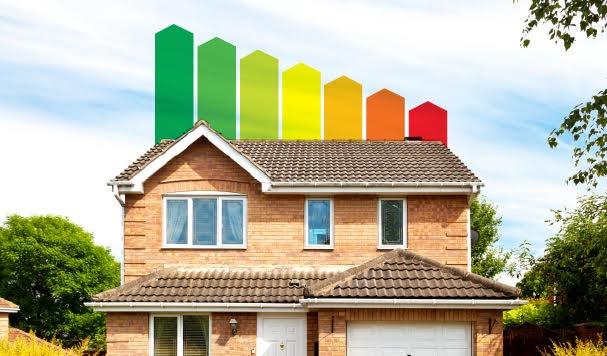How your BER Affects Your Home's Heating

Since 2009, all buildings advertised for lease or sale are required to display a Building Efficiency Rating (BER) so you may be familiar with or have seen examples of the rating system before. However, it’s not always clear exactly what a BER means and how that affects your home heating bill.
In simple terms, a good BER means a more energy efficient home, but let’s take a look at what a ‘good BER’ actually is and how it can help you to be more energy efficient.
A ‘school report’ for energy efficiency
The BER is like a school report for your home, giving it an overall rating from A-G, with A being the most energy efficient and G being the least. As a rule of thumb, a building rated ‘G’ costs around ten times as much to heat per year as one with an ‘A’ grade.
How Is My Building Energy Rating Calculated?
A BER is calculated by a BER Assessor following a review of your property. During that review, the Assessor will examine the insulation level and type in all areas of your home. They check your boiler’s age and condition and look at other factors like the size, type and condition of your windows and doors.
The Assessor also needs to check the roof and floor dimensions and examine air flow and ventilation of your home to come up with a final grade. They will take into account any energy efficiency improvements or technology like solar panels, battery storage units or storage heaters too.
Knowing where your home needs to be improved is a huge start in improving your BER and making it more energy efficient. A quick chat with your Assessor will help point you in the right direction for any potential improvements.
What’s Affecting My BER?
You may already know that around 35% of heat lost from the average home escapes through the outer walls with up to 30% leaving through the roof. Taking a look at the suitability of your wall or attic insulation and checking for gaps or cracks is the first step in reducing that heat loss.
Another set of potential energy wasters are windows and doors. Single-paned windows, unsealed outer doors or any poorly-fitted frames will lose you up to 25% of your home’s heat.
You also need to be aware that poorly-performing windows or doors (and the draught that often comes with them) will greatly reduce the effectiveness of attic and wall insulation.
BER and Selling Your Home
As people are more aware of their energy usage and carbon emissions, the BER has become a major factor for potential buyers. In a 2019 survey by MyHome.ie, 92% of buyers said a Building Energy Rating was an ‘important consideration’ when house-hunting.
That means both the saleability and value of your home may be affected by its BER rating, so there are potential long term benefits to improving your home beyond the reduction in your bills and reduced carbon emissions.
Be BER Aware
From saving you money to a cosier living space, improving your home’s energy efficiency will pay dividends. The first step is getting an official BER for your home. To find your nearest BER Assessor, you can use SEAI’s National Register of Assessors.
If we work together we can all makes small changes that will have a big impact.
Find more sustainability and energy efficiency tips



